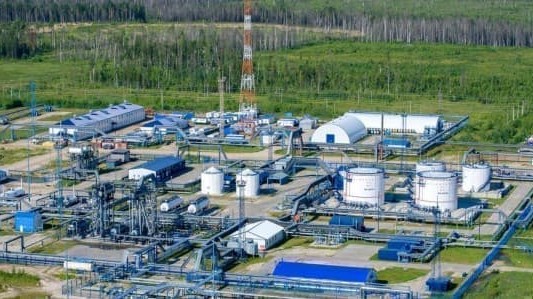
Despite a near economic collapse, shattered petroleum industry infrastructure and empty government coffers, Venezuela’s oil minister Tareck El Aissami continues to talk-up the prospects of the OPEC members crude oil output significantly expanding.
By Oil Price – Matthew Smith
Aug 2, 2021
In a June 21 interview with Bloomberg El Aissami claimed that Venezuela would quadruple its oil output by the end of 2021. The oil minister further asserted that regardless of U.S. sanctions foreign investment would gush into the founding OPEC member’s petroleum industry and production would eventually recover to such a level that Venezuela would rank among the world’s four largest crude oil production nations. According to El Aissami’s Venezuela will be pumping up to two million barrels of crude oil daily by the end of 2021, which is four times greater than the 500,000 barrels per day produced during 2020. Current circumstances, regardless of El Aissami’s assertions, indicate that the state goal is nearly impossible to achieve. OPEC’s July 2021 Monthly Oil Market Report shows that based on direct communications Venezuela pumped an average of 6330,000 barrels per day for June 2021. While this does represent a 9% increase compared to May and an impressive 67% year-over-year gain, it is still significantly less than the record 3.1 million barrels per day pumped during 1998 before Chavez came to power. Furthermore, the data released by Venezuela concerning the performance of the national oil company PDVSA is unreliable leading many analysts to rely on information from secondary sources. OPEC data from secondary sources indicate that Venezuela only produced an average of 529,000 barrels per day during June 2021, which is 16% less than the earlier number provided by Venezuela. Those numbers indicate there is a considerable way to go before petroleum production recovers to pre-crisis levels.
Venezuela’s immense production decline over the last two decades is the result of strict U.S. sanctions preventing Caracas from accessing international energy and capital markets. Those restrictions are also preventing oil companies from doing business with the Maduro regime with many opting for over compliance to avoid penalties. The late-2014 oil price collapse, systematic malfeasance and endemic corruption accelerated that deterioration. Despite El Aissami’s optimism, there are signs of a long road ahead for Venezuela before any sustained recovery in oil production will occur.
A leaked PDVSA document states the national oil company believes investment of $58 billion in Venezuela’s oil industry is required to revive production to 1998 levels. That is a tremendous amount of capital which ultimately will only be obtained by courting and attracting substantial investment from major foreign oil companies. Even Russian energy supermajor Rosneft chose to sell its substantial Venezuelan assets, acquired through a series of unprofitable joint ventures with PDVSA and government loans to a Kremlin-controlled entity during 2020.
This was because of stricter U.S. sanctions, which saw Washington impose penalties on two Rosneft subsidiaries. The Russian energy supermajor took the decision despite sinking $9 billion into joint ventures with PDVSA since 2010 and incurring a significant loss on those investments. That event highlights U.S. sanctions are now a major deterrent for privately owned energy companies seeking to operate in Venezuela or conduct business with the Maduro regime.
Washington’s sanctions have also substantially amplified the logistical difficulties associated with maintaining, repairing, and refitting Venezuela’s crumbling petroleum infrastructure. Chinese engineering firms which initially committed to repairing and upgrading Venezuela’s heavily corroded refineries backed out of the deal because of their seriously dilapidated condition and lack of access to crucial parts.
While Iran has provided some assistance with rebuilding Venezuela’s ramshackle refineries, U.S. sanctions have prevented Teheran’s technicians from obtaining key parts for the western designed and built facilities. Much of Venezuela’s petroleum infrastructure was built by western energy majors, making it reliant upon parts and technical expertise sourced from outside of Venezuela, primarily from the U.S., for maintenance and refits. Those issues stress how important it is for U.S. sanctions to be eased before Venezuela can attract sufficient capital to rebuild its crumbling petroleum infrastructure. That simply will not occur for as long as strict U.S. sanctions preventing the sale of Venezuelan oil and penalizing companies doing business with the Maduro regime remain in place.
…
Read More: Oil Price – Venezuela’s oil production plans are entirely unrealistic
…

